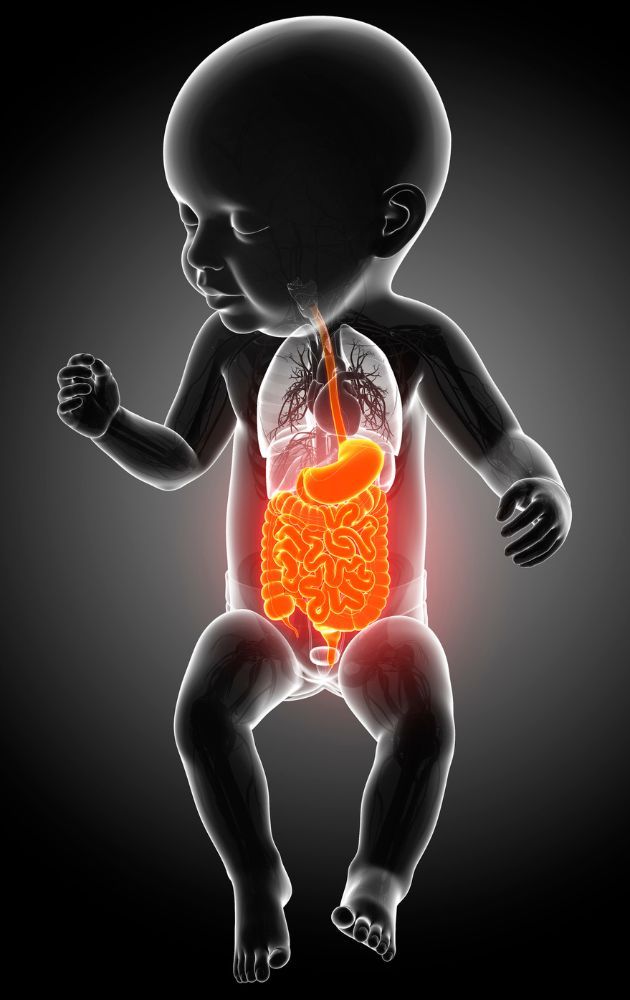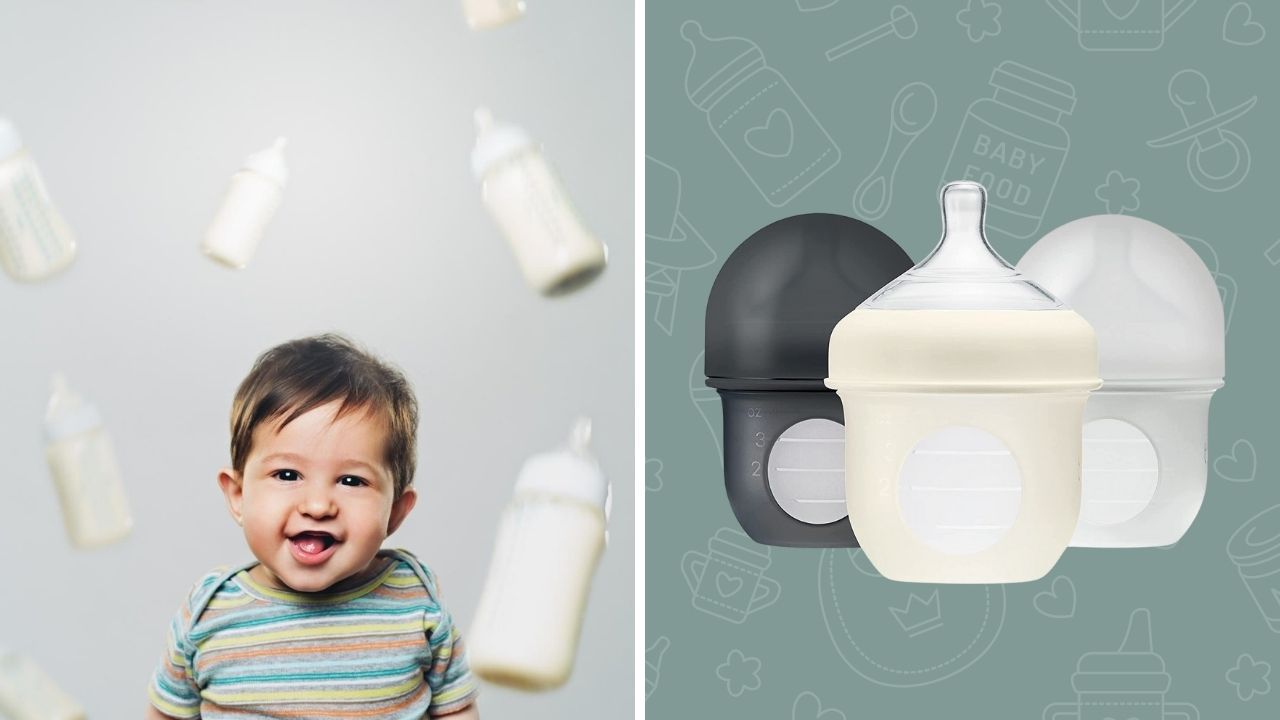
Is Breast Milk More Filling than Formula? Let's Discuss
Is breast milk more filling than formula? Uncover the truth about infant feeding and how it affects your baby's hunger and digestion.
If you've landed here, you're probably trying to unravel the mystery that is infant feeding. One of the most common questions that we hear is: "Is breast milk more filling than formula?"
The answer isn't as straightforward as you might think, but don't worry, we're going to break it all down for you. It's important to understand this because it influences your baby's feeding schedule, sleep pattern, and overall health.
Understanding Breast Milk and Formula
What is Breast Milk?
Breast milk, also known as liquid gold in the parenting world, is the first food your body naturally produces for your newborn. It's a remarkable substance that changes its composition according to your baby's needs. Crazy, right?
Now, let's talk about what makes up this magical potion. Mother's milk contains proteins, fats, vitamins, and carbohydrates. But the star of the show is the antibodies. These little warriors help your baby fight off viruses and bacteria. It's like a mini immune booster in every drop!
What is Baby Formula?
On the other hand, baby formula is a manufactured food designed for feeding infants under 12 months of age.
It's usually made from cow's milk that's been altered to resemble breast milk.
Now, it might not have the antibodies that breast milk does, but it's fortified with necessary nutrients like Vitamin D and iron, which are crucial for your baby's growth. There are also a variety of organic baby formulas as well.
The composition of baby formula varies by brand, but generally, it contains proteins, fats, carbohydrates, and a range of vitamins and minerals. Some formulas even add prebiotics and probiotics to support digestive health.
So, in essence, both mother's milk and formula are designed to nourish your baby. But how they do this, and their impact on your baby's hunger, can vary.
Stay tuned as we dive deeper into the science behind the digestion and satiety of these two types of milk!
Nutrition Facts Comparison: 1 oz of Breast Milk vs. 1 oz of Infant Formula
| Nutrient | Breast Milk | Infant Formula |
|---|---|---|
| Calories | 20 kcal | 20 kcal |
| Protein (g) | 0.28 g | 0.23 g |
| Carbohydrates (g) | 2.6 g (from lactose) | 2.7 g (from various sources) |
| Fats (g) | 1.2 g | 1.4 g (from vegetable oils) |
| Vitamin A (IU) | 68 IU | 50 IU |
| Vitamin C (mg) | 5.5 mg | 8.5 mg |
| Vitamin D (IU) | 13 IU | 10 IU |
| Vitamin E (mg) | 0.045 mg | 0.36 mg |
| Calcium (mg) | 14 mg | 5 mg |
| Iron (mg) | 0.03 mg | 0.2 mg |
| Zinc (mg) | 0.2 mg | 0.15 mg |
| Omega-3 Fatty Acids (mg) | Varies | Varies |
| Omega-6 Fatty Acids (mg) | Varies | Varies |
The Science of Digestion: Breast Milk vs. Formula
Now that we've got the basics covered, let's delve into the fascinating world of infant digestion.
Because believe it or not, how your baby processes breast milk versus formula can greatly influence their feeding habits and satiety.

How Babies Digest Breast Milk
Breast milk is like a custom-made meal for your baby. It's easily digestible because it's specifically designed for your baby's immature digestive system.
For instance, the proteins in breast milk, mainly whey, and casein, are in perfect balance. Whey is more easily and quickly digested, which might explain why breastfed babies often feed more frequently.
Carbohydrates, largely in the form of lactose, provide energy and help absorb calcium and magnesium. And the vitamins and minerals? They're in just the right amounts and are more bioavailable, meaning they're easier for your baby to absorb.
How Babies Digest Formula
Now, onto powdered formula. While the formula is designed to mimic breast milk, it's not an exact copy.
The proteins in the formula come mainly from cow's milk, thus Infant formula takes longer to digest and may be considered more filling than breast milk. That's why some formulas partially break down the proteins to make them easier on your baby's tummy.
The fats in the formula are also different from those in breast milk. While manufacturers try to mimic the composition of breast milk fats, they can't replicate the structure, making them harder for babies to digest.
Carbohydrates in the formula are usually a mix of lactose and other sugars. Some formulas may even use corn syrup solids as a carbohydrate source.
The vitamins and minerals in the formula are fortified to ensure your baby gets their daily needs, but they can be harder for your baby to absorb compared to those in breast milk.
So, does this mean mother's milk is more filling than formula? Not necessarily. While breast milk is easier to digest, the formula takes longer to process, which can keep your baby feeling fuller for longer.
But remember, each baby is unique and will have their own feeding patterns, regardless of what they're being fed.
Always follow your baby's cues and consult with your pediatrician about any concerns.
Is Breast Milk More Filling Than Formula?

To answer this, we need to understand how each type of milk affects your baby's satiety or feeling of fullness.
Satiety and Breast Milk
Breast milk is easily digested and absorbed by your baby's body. This means that your little one might get hungry sooner after a breastfeeding session compared to a formula feeding.
It's not that breast milk isn't filling; it's just that it leaves the stomach quicker because it's so well digested.
This is supported by scientific research. For instance, a study published in the European Journal of Pediatrics found that breastfed babies tend to eat more frequently than formula-fed babies [source].
This doesn't mean they're not getting enough nourishment, it simply reflects the digestibility of breast milk.
Satiety and Formula
On the flip side, the formula takes longer to digest, which can keep your baby feeling fuller for longer periods. The proteins in formula are harder for babies to break down, so they stay in the stomach longer. This slower digestion rate might be why formula-fed babies don't feed as often as breastfed ones.
This idea is backed up by science too. The same study mentioned earlier found that formula-fed babies tended to go longer between feedings compared to breastfed babies [source].
So, in a nutshell, while breast milk might not keep your baby full as long as formula does, it doesn't mean it's any less nutritious or beneficial.
Remember, every baby is different, and what works for one might not work for another. The best approach is always to tune in to your baby's needs and consult with your healthcare provider when in doubt.
Pros and Cons of Breast Milk and Formula

Understanding the benefits and drawbacks of both breast milk and formula can help you make an informed decision about what's best for you and your baby.
Benefits of Breast Milk
- Tailor-Made Nutrition: Momma's milk changes its composition as your baby grows to meet their nutritional needs perfectly. Can be especially beneficial for premature babies.
- Immunity Boost: Antibodies and germ-fighting factors pass from a mother to her baby, strengthening the immune system and allowing the baby to fight off viruses and bacteria.
- Digestibility: It's easier on your baby's immature digestive system.
- Bonding: Breastfeeding can create a strong emotional connection between mother and baby.
Benefits of Formula
- Convenience: Formula can be prepared by anyone, anytime, making it easier for others to help with feeding.
- Flexibility: It offers more freedom as you don’t have to plan around your baby’s feeding schedule.
- Measurement: You can easily track how much your baby is eating.
- Longer satiety: Formula takes longer to digest, keeping your baby full for longer periods.
Drawbacks of Breast Milk
- Demanding: Breastfeeding can be physically demanding and time-consuming.
- Diet restrictions: Mothers may need to watch their diet as some foods can affect the baby.
- Soreness: Some mothers may experience nipple soreness or infection.
Drawbacks of Formula
- Cost: Formula can be expensive over time especially if you buy organic formulas.
- Preparation: It requires proper preparation and storage to prevent bacterial contamination.
- Possible intolerance: Some babies might have allergies or intolerance to certain formulas.
| Nutrient | Breast Milk | Infant Formula |
|---|---|---|
| Protein | Contains whey and casein proteins in optimal ratio for digestion. | Typically contains cow's milk or soy protein as a base. |
| Carbohydrates | Contains lactose, which aids in brain development and digestion. | Often contains lactose, corn syrup solids, or other carbohydrates. |
| Fats | Rich in essential fatty acids for brain and visual development. | Contains a blend of vegetable oils to mimic breast milk fat. |
| Vitamins | Contains naturally occurring vitamins A, C, D, E, and others. | Added vitamins to match or exceed breast milk levels. |
| Minerals | Provides minerals like calcium, iron, and zinc in bioavailable forms. | Fortified with minerals to mimic breast milk levels. |
| Enzymes and Hormones | Contains digestive enzymes and hormones that aid in digestion and growth. | Typically does not contain natural enzymes and hormones. |
| Antibodies and Immune Factors | Contains antibodies, white blood cells, and immune factors for immune support. | Formula may include some immune-supportive components. |
| Prebiotics and Probiotics | Contains prebiotics that support healthy gut bacteria. | Some formulas add prebiotics or probiotics for gut health. |
| Oligosaccharides | Contains complex sugars that support gut health and immune function. | Some formulas add prebiotics or synthetic oligosaccharides. |
My Personal Experience with Breastfeeding

Every mother's feeding journey is unique, filled with its own highs and lows. Let's take a look at some real-life experiences of mothers who have chosen to breastfeed or formula-feed.
For me, breastfeeding was a beautiful experience. Sure, it was challenging at times, especially in the beginning when I was still getting the hang of it.
But the bond it created between me and my baby is priceless.
Plus, knowing that my body was producing the perfect food for them gave me a sense of accomplishment.
I might also stress the importance of support. I was lucky to have a supportive network that encouraged me through the tough times. And believe me, there were many - from sleepless nights to dealing with mastitis, twice! But I'd do it all over again.
Frequently Asked Questions
Are breastfed babies more chubby than formula fed?
Breastfed babies typically gain weight more slowly than formula-fed infants during their first year. Formula-fed babies tend to gain weight and length more rapidly [source].
Why is my baby still hungry after breastfeeding?
Your baby may seem hungry after breastfeeding due to reasons like growth spurts, needing comfort, or increasing milk supply. However, if your baby is losing weight or appears sluggish, it's important to contact a healthcare provider.
What is considered a full feed when breastfeeding?
A full feed when breastfeeding typically means your baby has been fed until they are satisfied.
This can take around 10-20 minutes on each breast, but every baby is different. If your baby seems content and is gaining weight normally, they're likely getting a full feed.
Why is my baby not getting full from breast milk?
Your baby might not feel full from breast milk due to a poor latch, not feeding often enough, or low milk production. If your baby is sleepy, has low energy, or feedings are too short, it could mean they're not getting enough milk.
How many ounces does a baby get while breastfeeding?
During breastfeeding, a baby usually takes in about 2-3 ounces per feeding in their first month, and around 4-5 ounces per feeding from 2 months old. However, the amount can vary between 1.9 to 8.2 ounces depending on the baby's age and needs [source].
Final Thoughts
Whether breast milk is more filling than formula isn't a simple yes or no question. While breast milk is easily digested, the formula tends to keep babies fuller for longer due to its slower digestion rate.
However, there are many factors to consider when choosing between breastfeeding and formula feeding, including personal circumstances, medical conditions, and lifestyle.
Remember, there's no one-size-fits-all answer here. What's most important is that your baby is getting the nourishment they need to grow healthy and strong. Always consult with your healthcare provider to decide what's best for you and your little one.
Found this blog post helpful? Feel free to share it with other mothers or mothers-to-be. And if you have any questions or experiences to share, we'd love to hear from you in the comments section below.
Remember, every mother's journey is unique, and sharing our stories can offer support and insight to others in the same boat. Happy feeding!
Before You Go...







